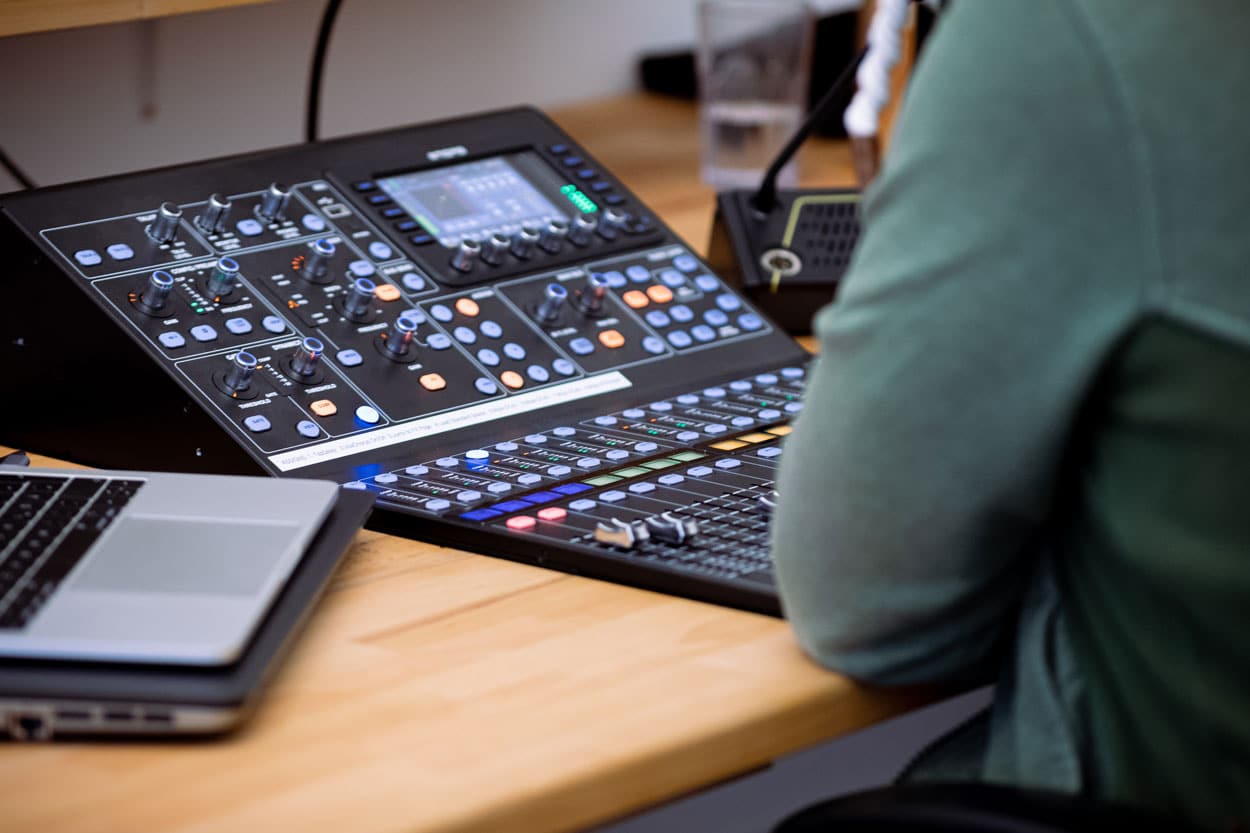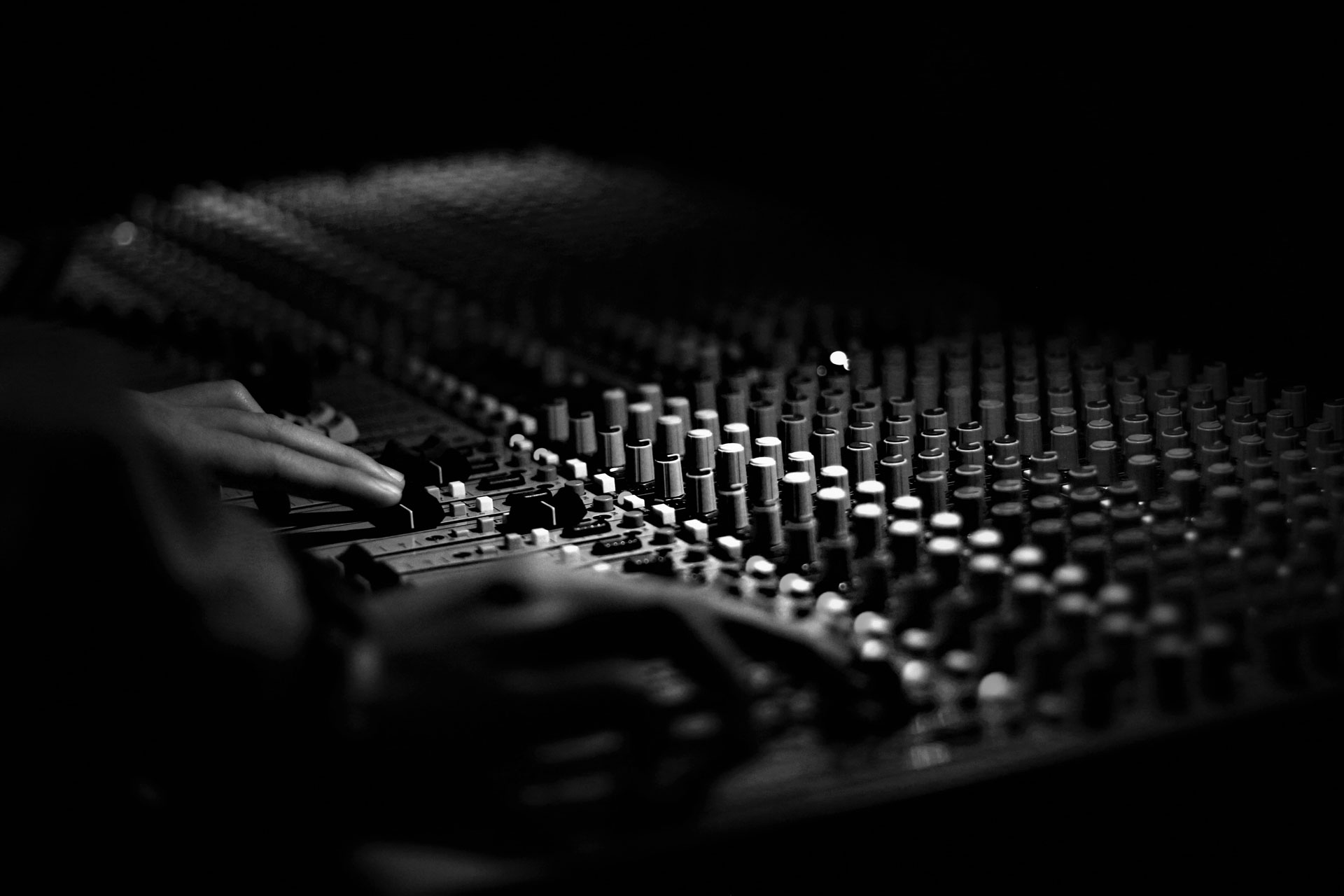Musicians from all around the world seek the best sound production facilities for the recording process. Sound production is not limited solely to audio and sound recording; rather, it is a complex process that involves the creativity, expertise, and efforts of many departments.
Starting from the recording session to the final product, the process of audio production involves various phases. Being the best audio production company in Dubai, let us take you into the world of audio production and mastering and learn their differences.
Audio Production
For a great recording, this is a lot that should go into the audio production process. This includes setting up foley pits, tuning the instruments, selecting the right mic, scratch testing, etc. Audio production work is a necessity in every form of media production. Be it movies, animations, advertisements, and TV or music concerts.
In the music industry, audio production includes all stages of sound production. Audio production and mastering are interconnected in a way that mastering is the final sonic touch that produces a refined item in the market. While they both play critical roles in shaping the final product, they are distinct phases with unique purposes and techniques.

Audio Production: Crafting the Foundation
Audio production involves the creation and arrangement of sound elements to develop a musical composition. It is the initial creative phase where ideas are brought to life by the music producers, and raw audio recording is transformed into a cohesive and captivating audio experience.
The Audio Production Process
1.Pre Production
- Conceptualizing the musical idea, songwriting.
- Planning the arrangement, instrumentation, and overall sound for producing audio.
2.Recording
- Sound recording by music producers, musicians, and vocalists at a recording studio.
- Selecting microphones, instruments, and digital audio workstations.
3.Editing
- Trimming, aligning, and fine-tuning recorded tracks by audio engineers.
- Correcting mistakes and enhancing performances.
4.Mixing
- Balancing the individual tracks (e.g., vocals, drums, guitar) to create a harmonious blend.
- Applying effects using recording equipment, EQ, and panning for spatial positioning.
5.Arranging
- Structuring the song, determining when and how different elements enter and exit.
- Adding creative touches like transitions and builds on audio software.
6.Creative Input
- Adding creative sound effects, textures, and sonic enhancements using the music production skills of the audio engineer.
- Experimenting with production techniques in the audio post-production studio to achieve the desired mood and atmosphere.
Key Responsibilities of Audio Producers
- Creative Direction: Shaping the creative ideas of the music artists, clients, and production houses.
- Recording Supervision: Ensuring high-quality recordings during studio sessions.
- Editing and Mixing: Polishing and refining the recorded tracks via sound engineering, creating sound effects.
- Instrumentation and Arrangement: Deciding which instruments and sounds to include and how they fit together.
- Communication: Collaborating with artists, musicians, and engineers to achieve the desired sound.
The Goal of Audio Production
Audio production aims to create a well-structured and emotive musical composition. It sets the foundation for a song by crafting the sonic elements, arrangement, and overall feel, but it’s not the final step in the music production journey. This is where mastering comes into play.

Mastering: The Final Sonic Touch
Mastering is the last step in the music production process in the post-production editing phase, where the final mix is transformed into a polished and cohesive audio product ready for distribution. It’s the bridge between the creative process and the audience’s ears.
The Mastering Process
1.Audio Enhancement
- Adjusting the overall tonal balance of the mix.
- Enhancing clarity, depth, and detail in the sound.
2.Sequencing
- Arranging the tracks in the correct order for an album.
- Ensuring consistent volume levels and transitions between songs.
3.Format Conversion
- Preparing the audio for various distribution formats (CD, vinyl, digital).
- Encoding metadata like track titles, artist names, and ISRC codes.
4.Quality Control
- Listening critically for any imperfections or artifacts.
- Ensuring the audio meets industry standards for loudness and dynamics.
5.Finalization
- Creating a master copy of the audio that serves as the source for duplication or distribution.
- Preparing additional formats like instrumental versions or radio edits.
Key Responsibilities of Mastering Engineers
- Audio Enhancement: Fine-tuning the sound for sonic excellence.
- Consistency: Making sure that all the songs within an album sound coherent.
- Quality Assurance: Detecting and rectifying any audio issues.
- Compatibility: In post-production, prepare the final audio for various playback systems.
- Metadata and Packaging: Adding essential information for distribution.
The Goal of Mastering
Mastering aims to elevate the audio to its highest possible quality, ensuring it translates well across different playback systems and formats. It provides a final layer of refinement that brings out the full potential of the music, making the final audio sound its best on various devices, from studio monitors to headphones.
Mastering is the last step in the whole process of making music after it has been recorded. This process changes a finished music mix so that it can be enjoyed best on different devices. This makes sure that everyone has a smooth listening experience.
As the best and most well-known sound design company in Dubai, BKP has won many awards over the years; we work hard on each project with a level of precision that can’t be beaten.
Key Differences Between Audio Production and Mastering
Now that we have a solid understanding of what each process entails, let’s explore the key differences between audio production and mastering:
Audio Production:
Mastering:
- Stage in the Production Timeline
Occurs early in the production timeline, focusing on the creation and arrangement of musical elements.
Takes place at the end of the production process, after the audio has been mixed and is ready for distribution.
- Creative vs Technical
Primarily a creative process where artistic decisions are made, and the music takes shape.
A more technical and objective process that fine-tunes and enhances the already created mix.
- Responsibilities
Involves creative direction, recording, editing, mixing, and arrangement.
Focuses on audio enhancement, sequencing, format conversion, quality control, and finalization.
- Creative Input
Allows for a wide range of creative experimentation and artistic expression.
Focuses on refining and optimizing the audio rather than introducing new creative elements.
- Artistic Vision vs Technical Precision
Driven by the artist’s and producer’s vision, with room for creative interpretation.
Requires precision and adherence to technical standards to ensure the audio meets industry norms.
- Number of Tracks
Involves working with multiple tracks to create the song.
Typically focuses on the final stereo mix of the song or album.
- Studio Equipment
Utilizes a wide array of studio equipment, instruments, and software for recording and mixing.
Employs specialized mastering hardware and software, including equalizers and compressors.
- Skill Set
Requires skills in music composition, recording techniques, mixing, and arrangement.
Demands expertise in audio engineering, critical listening, and quality control.
The Symbiotic Relationship
While audio production and mastering are distinct phases in the music production process, they are interconnected and rely on each other to create a successful final product. Here’s how they work together:
- Audio Production Sets the Stage: The quality of the final master largely depends on the quality of the audio production. A well-produced recording with balanced tracks and minimal flaws provides a solid foundation for mastering.
- Mastering Polishes the Gem: Mastering takes audio production to the next level, enhancing its sonic characteristics, ensuring consistency across tracks, and preparing it for distribution. It’s the finishing touch that can make a good song great.
- Communication is Key: Effective communication between audio producers and mastering engineers is essential. Producers should convey their artistic vision, and mastering engineers should understand the desired outcome to achieve the best results.

Conclusion: The Harmony of Sound
In the world of music and audio, audio production and mastering are two sides of the same coin. While they have distinct roles and responsibilities, they are intrinsically connected, working together to bring music to life and present it to the world in its best possible form.
Audio production is where creativity thrives, ideas flourish, and the musical journey begins. It lays the foundation for a song or album, shaping its core elements and artistic direction. Without audio production, there would be no raw material for mastering to refine.
Mastering, on the other hand, is the final step that ensures the music is presented in its most polished and professional state. It addresses technical details, enhances audio quality, and prepares the music for distribution across various platforms.
At BKP, we know that time is of the essence. Our fast process gives you peace of mind, knowing that your project is in the hands of experts. With our easy-to-use methods, you can now focus on other important parts of your movie, knowing that we have your back.
FAQ’s
What does an audio producer do?
An audio producer is the creative director of the project who conceives the idea, supervises the recording process, and edits and mixes the track. He also deals with instrumentation and arrangements of various sounds within the piece of music. An audio producer must have to communicate with artists, musicians, and engineers to achieve the desired sound.
What is audio production vs. music production?
Audio production is a vast field that deals with all sorts of sound production, while music production is a part of audio production that deals with specific areas of media and audio production.
What is audio production software?
Audio production software consists of various IT tools developed to support, enhance, and represent the process of audio production. They help in all fields of recording, mixing, editing, and mastering.
How do I start a career in audio production?
When it comes to making music, the options are almost limitless. Today, if you have the right skills, information, and tools, there are a lot of chances to work in audio production. You can join a training course at an audio production studio. All that matters is where you want to go with it.












